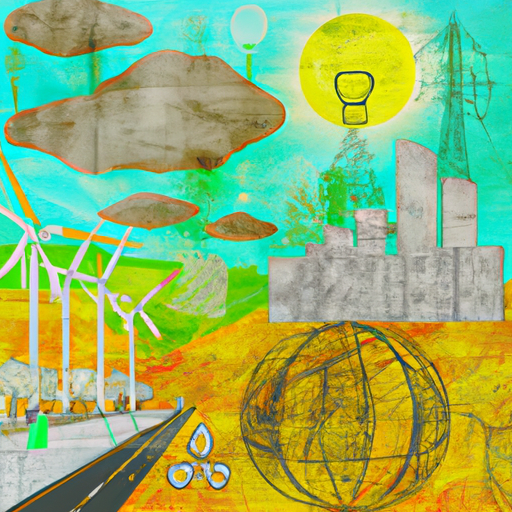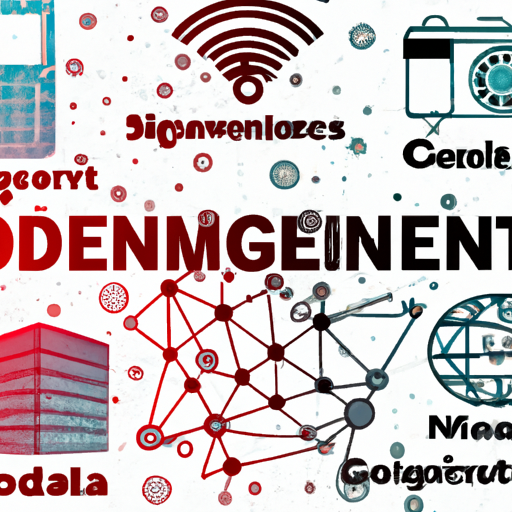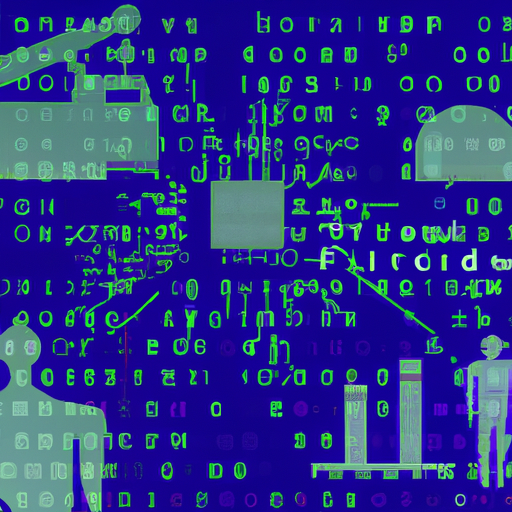-
Table of Contents
- Introduction
- Exploring the Potential of Renewable Energy Sources: What Are the Benefits and Challenges?
- The Role of Smart Grids in the Future of Energy: How Can We Make the Most of Them?
- The Impact of Climate Change on the Future of Energy: What Can We Do?
- The Benefits of Investing in Renewable Energy: What Are the Financial and Environmental Impacts?
- Conclusion
“Powering the Future: Renewable Energy and Smart Grids for a Sustainable Tomorrow”
Introduction
The future of energy is an exciting and rapidly evolving field. With the world’s population growing and the need for energy increasing, the development of renewable energy sources and smart grids is becoming increasingly important. Renewable energy sources such as solar, wind, and geothermal are becoming more efficient and cost-effective, while smart grids are allowing for more efficient distribution of energy. These advances are helping to reduce our reliance on fossil fuels and create a more sustainable energy future. Additionally, new technologies such as energy storage and microgrids are helping to make renewable energy more accessible and reliable. As the world continues to move towards a more sustainable energy future, the development of renewable energy sources and smart grids will be essential.
Exploring the Potential of Renewable Energy Sources: What Are the Benefits and Challenges?
Renewable energy sources are becoming increasingly important in the modern world. As the global population continues to grow, the demand for energy is increasing, and the need to reduce our reliance on fossil fuels is becoming more urgent. Renewable energy sources offer a viable alternative to traditional sources of energy, and can provide a number of benefits to both individuals and society as a whole. However, there are also a number of challenges associated with the use of renewable energy sources.
The primary benefit of renewable energy sources is that they are a clean and sustainable source of energy. Unlike fossil fuels, which release harmful pollutants into the atmosphere, renewable energy sources such as solar, wind, and hydropower do not produce any emissions. This means that they can help to reduce air pollution and the associated health risks. Additionally, renewable energy sources are renewable, meaning that they can be used indefinitely without depleting the Earth’s resources.
Renewable energy sources can also provide economic benefits. By reducing our reliance on fossil fuels, renewable energy sources can help to reduce energy costs, as well as create jobs in the renewable energy sector. Additionally, renewable energy sources can help to reduce our dependence on foreign sources of energy, which can help to improve national security.
Despite the many benefits of renewable energy sources, there are also a number of challenges associated with their use. One of the primary challenges is the cost of installation and maintenance. Renewable energy sources require significant upfront investments, and the cost of installation and maintenance can be prohibitively expensive for many individuals and businesses. Additionally, renewable energy sources are often intermittent, meaning that they are not always available when needed. This can make them unreliable sources of energy, and can make them difficult to integrate into existing energy grids.
In conclusion, renewable energy sources offer a number of benefits, including reduced air pollution, economic benefits, and improved national security. However, there are also a number of challenges associated with their use, including high installation and maintenance costs, and intermittent availability. Despite these challenges, renewable energy sources are becoming increasingly important in the modern world, and their use is likely to continue to grow in the future.
The Role of Smart Grids in the Future of Energy: How Can We Make the Most of Them?
Smart grids are an integral part of the future of energy. Smart grids are an advanced form of the traditional electrical grid, which uses digital technology to monitor, control, and optimize the delivery of electricity. Smart grids are designed to be more efficient, reliable, and secure than traditional grids, and they are capable of providing a more reliable and cost-effective energy supply.
Smart grids are able to provide a more reliable energy supply by using advanced technologies such as distributed generation, demand response, and energy storage. Distributed generation refers to the use of small-scale renewable energy sources such as solar and wind to generate electricity. Demand response is a system that allows customers to adjust their energy usage in response to changes in the price of electricity. Energy storage systems allow excess energy to be stored for later use. These technologies allow smart grids to better manage the supply and demand of electricity, resulting in a more reliable and cost-effective energy supply.
In order to make the most of smart grids, it is important to ensure that they are properly implemented and maintained. This includes ensuring that the grid is properly connected to the power sources, that the grid is properly monitored and controlled, and that the grid is properly maintained. Additionally, it is important to ensure that the grid is properly integrated with other energy sources, such as renewable energy sources, in order to maximize the efficiency of the grid.
Finally, it is important to ensure that the grid is properly managed in order to ensure that it is secure and reliable. This includes ensuring that the grid is properly monitored and controlled, that the grid is properly maintained, and that the grid is properly integrated with other energy sources. Additionally, it is important to ensure that the grid is properly managed in order to ensure that it is secure and reliable.
In conclusion, smart grids are an integral part of the future of energy. In order to make the most of smart grids, it is important to ensure that they are properly implemented and maintained, that they are properly integrated with other energy sources, and that they are properly managed in order to ensure that they are secure and reliable. By doing so, we can ensure that smart grids are able to provide a more reliable and cost-effective energy supply.
The Impact of Climate Change on the Future of Energy: What Can We Do?
Climate change is one of the most pressing issues of our time, and its effects on the future of energy are far-reaching. As temperatures rise, the demand for energy increases, and the need for renewable sources of energy becomes more urgent. In order to ensure a secure and sustainable energy future, it is essential that we take action now to reduce our reliance on fossil fuels and transition to renewable sources of energy.
The most effective way to reduce our reliance on fossil fuels is to increase our use of renewable energy sources. Renewable energy sources, such as solar, wind, and hydropower, are clean, abundant, and cost-effective. By investing in renewable energy sources, we can reduce our dependence on fossil fuels and reduce the amount of carbon dioxide released into the atmosphere. Additionally, renewable energy sources can provide reliable and affordable energy to communities around the world.
In addition to investing in renewable energy sources, we must also take steps to reduce our energy consumption. By making small changes in our daily lives, such as using energy-efficient appliances and turning off lights when not in use, we can reduce our energy consumption and help to reduce the effects of climate change. Additionally, we can support policies that promote energy efficiency and renewable energy sources.
Finally, we must also take steps to educate ourselves and others about the effects of climate change and the importance of transitioning to renewable energy sources. By raising awareness about the issue, we can encourage individuals and businesses to make the switch to renewable energy sources and reduce their carbon footprint.
Climate change is a complex issue, and its effects on the future of energy are far-reaching. However, by taking action now to reduce our reliance on fossil fuels and transition to renewable energy sources, we can ensure a secure and sustainable energy future. By investing in renewable energy sources, reducing our energy consumption, and raising awareness about the issue, we can make a difference and help to protect our planet for future generations.
The Benefits of Investing in Renewable Energy: What Are the Financial and Environmental Impacts?
Investing in renewable energy has become increasingly popular in recent years due to its numerous financial and environmental benefits. Renewable energy sources, such as solar, wind, and geothermal, are clean, sustainable, and cost-effective alternatives to traditional energy sources, such as coal and natural gas. By investing in renewable energy, individuals, businesses, and governments can reduce their carbon footprint, save money, and create jobs.
The financial benefits of investing in renewable energy are numerous. Renewable energy sources are often cheaper than traditional energy sources, and they can provide long-term savings. Additionally, renewable energy sources are often eligible for government incentives, such as tax credits and grants, which can further reduce the cost of installation and operation. Furthermore, investing in renewable energy can help to reduce energy costs, as renewable energy sources are often more efficient than traditional energy sources.
The environmental benefits of investing in renewable energy are also significant. Renewable energy sources produce no emissions, meaning they do not contribute to air pollution or global warming. Additionally, renewable energy sources are often more reliable than traditional energy sources, as they are not subject to the same fluctuations in supply and demand. Finally, investing in renewable energy can help to reduce dependence on foreign energy sources, as renewable energy sources are often produced domestically.
In conclusion, investing in renewable energy has numerous financial and environmental benefits. Renewable energy sources are often cheaper than traditional energy sources, and they can provide long-term savings. Additionally, renewable energy sources produce no emissions, meaning they do not contribute to air pollution or global warming. Finally, investing in renewable energy can help to reduce dependence on foreign energy sources, as renewable energy sources are often produced domestically. For these reasons, investing in renewable energy is a smart choice for individuals, businesses, and governments alike.
Conclusion
The future of energy is bright. Renewable energy sources such as solar, wind, and geothermal are becoming increasingly cost-effective and efficient, and are becoming more widely adopted. Smart grids are also becoming more prevalent, allowing for more efficient energy distribution and usage. With continued investment in renewable energy and smart grids, the future of energy looks to be one of sustainability and efficiency.




